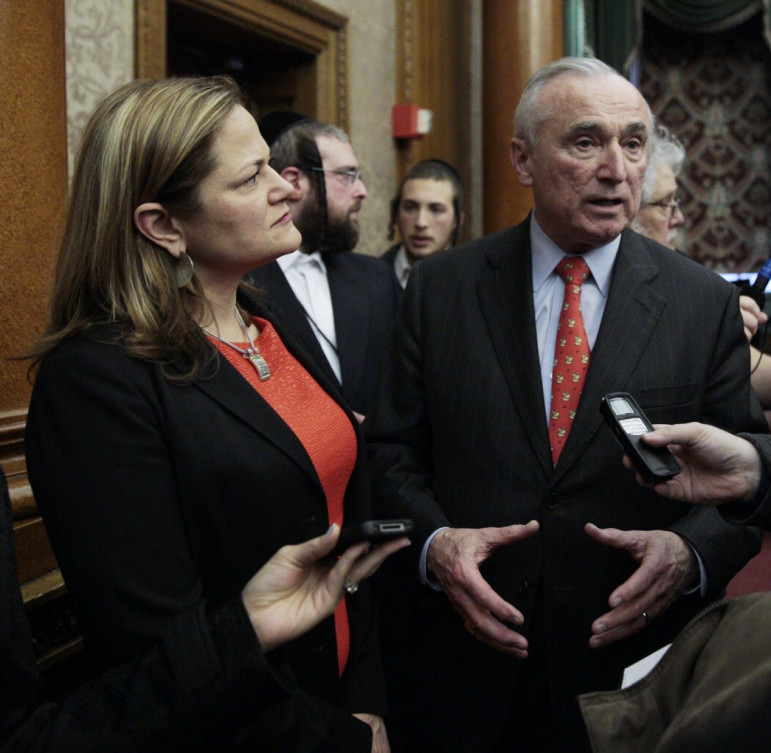
William Alatriste/City Council
Council Speaker Melissa Mark-Viverito and NYPD Commissioner William Bratton at an event last month.
A few days before an undercover Queens police officer was fatally shot, commissioner Bill Bratton released a 41-page report titled “Broken Windows and Quality-of-Life Policing in New York City.” A recent City Council-led push to decriminalize some minor offenses, which Broken Windows policing targets, had also been making news as the city begins to ask if some behaviors should result in arrest.
Both were, of course, political responses to a steady stream of criticism, both locally and nationally, directed at Bratton’s signature policing brand, Broken Windows policing.
Though stout in the defense of his legacy, Bratton was remarkably open to a conservation on how to approach low-level-crime—perhaps a welcomed break from his famously zero-tolerance style. But for those who know the media savvy and politically adept animal that Bratton has evolved into, the devil is likely in the details.
Tasked with devising some of the details in the name of good governance is the City Council. The Council and its speaker, Melissa Mark-Viverito, have for the second year in a row feverishly requested 1,000 extra cops to be added to the nation’s largest police force. Their push, however, doesn’t appear to be rooted in any community demand: There hasn’t been a single forum or town hall on the issue of the NYPD headcount size. In fact, when brought up at a public event organized in Brooklyn by borough president Eric Adams, the idea was roasted. Mark-Viverito, representing some of the city’s most over-policed neighborhoods, has sometimes struggled to articulate the core policing concepts she’s using to rationalize the deployment of 1,000 extra cops. She stumbled over our questions on ‘community policing’ when approached at a food sculpture event in the South Bronx last month.
Most vocal on the Broken Windows front is Queens councilmember Rory Lancman, head of the Council’s committee on courts and legal services. In an interview on WNYC last month Lancman laid out the City Council proposal to “decriminalize” some minor, quality-of-life offenses. The Council would seek to turn criminal penalties for a handful of minor offenses into civil ones. On the issue of more police, Lancman, one of the loudest proponents of the 1,000-cop plan, suggested opposition was simply anti-cop:
“I think where one stands on this issue is to a certain extent driven by whether one views police with hostility or not”, mused the Councilmember.
It was late last year as protests rocked the city and calls to end Broken Windows policing went national that Lancman began hearings on summons court inefficiencies and suggested some reforms were in order. Lancman’s proposals were possibly a pre-emptive move to better manage an expected rise in marijuana summonses for the courts after Mayor de Blasio announced last November the city would look to replace racially discriminatory weed arrests with racially discriminatory weed summonses for certain quantities of pot. Possession of small amounts of marijuana was “decriminalized” in New York in 1977, but arrests for small-scale pot possession represent one of the most racially lopsided policing outcomes of today. Lancman’s plan to decriminalize a handful of handpicked low-level offenses, diverting poor people of color from criminal to civil court, which often has higher conviction rates and sometimes more costly fines, would similarly miss the mark.
Politically, Lancman’s decision to grab the reins of ‘reform’ was an effort to get out in front of the conversation and redirect it to one of better court efficiency–not fundamental police reform. It’s also likely that Lancman, Mark-Viverito and members of the Black, Latino and Asian Caucus—politicians sensitive about their “progressive” reputations—put out the decriminalization plan to placate liberal non-profit organizations and allies who had publicly denounced their 1,000-cop plan just the week prior. Needing to balance their attempts to swell the department’s size, the progressives paired it with a liberal reform idea.
Bratton, ranked recently as the most powerful person in the city, can sleep peacefully if Mark-Viverito and Lancman’s proposals are the climax of the furor against Broken Windows. Their decriminalization plan wouldn’t come anywhere close to fundamentally affecting the overwhelming presence of cops in the daily lives of poor communities of color under the pretext of quality-of-life policing. “I want to emphasize there’s nothing that we’re going to do that is… going to decrease the ability of police officers to stop people who’re engaged in misconduct or offensive behavior, get their identification,” Lancman reassured.
Yet in a publicized letter to Mark-Viverito, Bratton brushed off the mild decriminalization plan, suggesting instead that he and a slew of criminal justice big-shots could help the Council figure out how to properly modify the criminal justice system. On policing, Broken Windows’ most powerful and visible champion said simply that “police power remains necessary,” even managing to work in his growing technological plans by suggesting digital tracking systems (part and parcel of Bratton’s ‘predictive policing’ infrastructure) should be be included in reforms: “A key element of this proposal, however, would be the development of an information-sharing protocol… to enable the identification of recidivists. Our expanding use of mobile digital technology could facilitate this greatly.”
Bratton operationalized Broken Windows policing in the 90’s with the help of another City Council under Mayor Rudy Giuliani. Policing Strategy No. 5 began the process of reframing laws and priorities for a city where serious crime had already begun to fall but needed to find more uses for cops. Crime continued to drop for the next two decades in New York, and across the country, even as the size of the NYPD both grew and shrank. Broken Windows’ fascination with low-level offenses simply provided a buffet of new interactions with the city’s most vulnerable populations—the poor and homeless, young people of color, where cops could fish for other crimes—like marijuana possession.
Today, that legacy won’t be undone by the city simply lessening the penalties for a handful of offenses it once criminalized. That can only be done by carving out the real heart of the Broken Windows strategy: the constant contact and surveillance of marginalized groups of people by police, the primary ushers into a racist criminal justice system. Legislation, therefore, means nothing if it doesn’t mean fewer cops and less surveillance–the opposite of what’s happening in New York. Reforms paired with the addition of resources and technology to the NYPD aren’t reforms at all. If the headcount increases and the NYPD’s ability to track and warehouse information on New Yorkers grows then the Broken Windows net is only cast wider.
Left out of the debate over minor tweaks to the city’s fundamental approch to policing is the fact Broken Windows is a sham. The underlying lie upon which American policing’s most celebrated philosophy was built points to a causal relationship between the policing of low-level crimes and a decline of serious crime that simply isn’t there. Bratton’s selling points have been challenged and outright debunked in books and studies. Even de Blasio, perhaps unwillingly, alluded to that during a recent Rolling Stone interview when he referred to popular notions of what law and order achieved during Giuliani/Bratton days as “pure myth.”
But the progressive politicians sitting across the table from Bratton do not threaten the acceptance of the myth of the persistence of the strategy . “It’s not about defining public order.” Lancman has said. “We [Bratton and he] agree that public order is important… It’s about redefining what the process is for people who have to go through the system.”
This is all consistent with de Blasio’s progressive interpretation of an evolving Broken Windows. In promoting last year’s marijuana “reform” the mayor said it was “an example of Broken Windows in evolution,” and added: “We’re going to be doing other evolutions.”


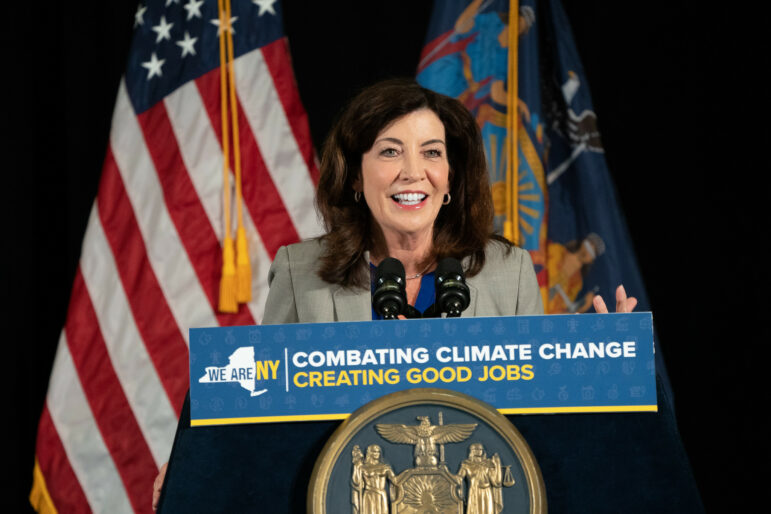

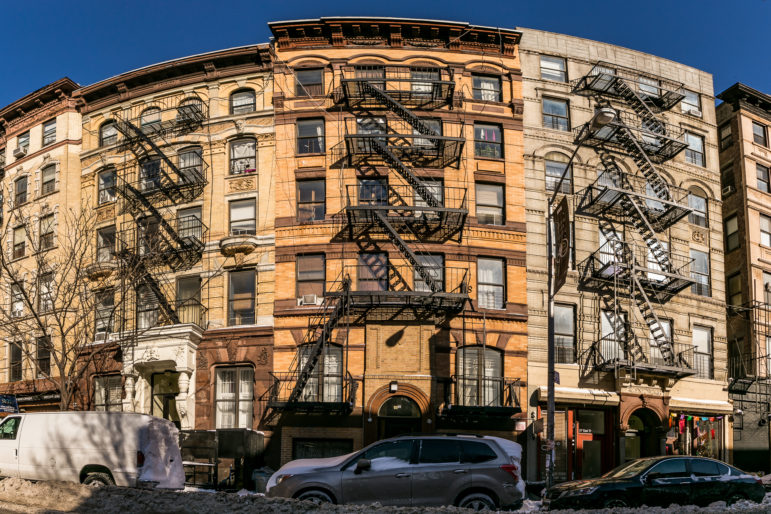
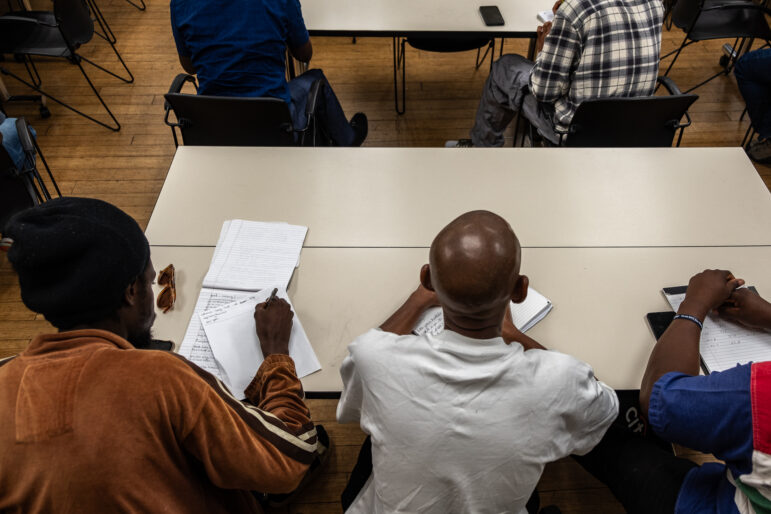
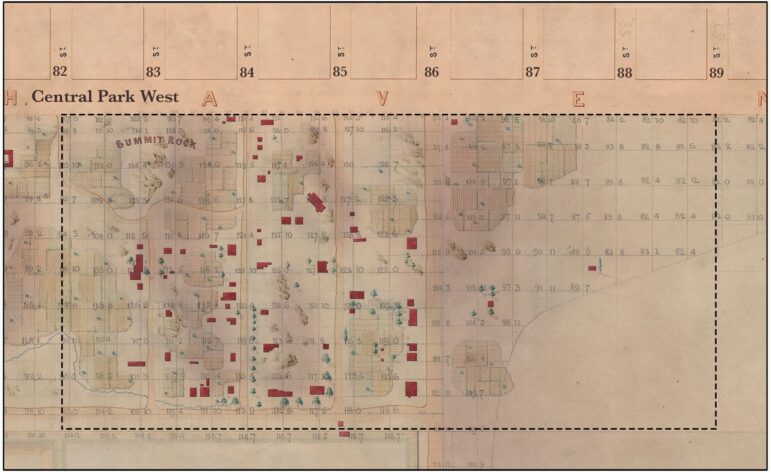


One thought on “Council’s NYPD Plan: Add Cops, Reduce Arrests, Avoid Real Changes”
Push comes to shove, the city lawmakers don’t give one iota of a crap about its citizens. Violent uprising is coming any day now.